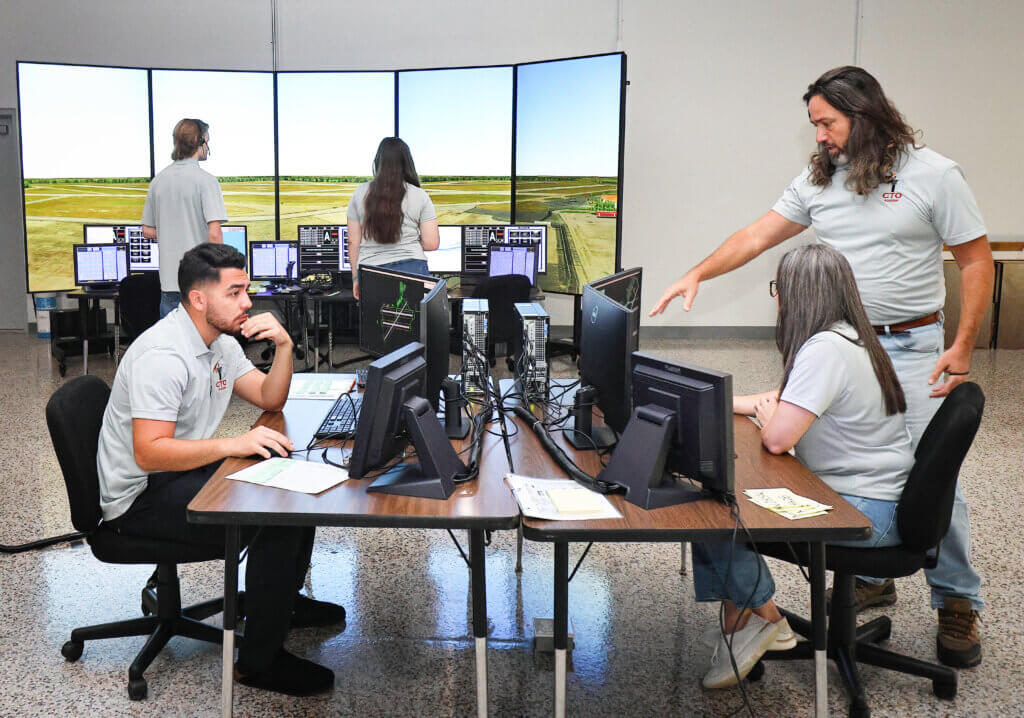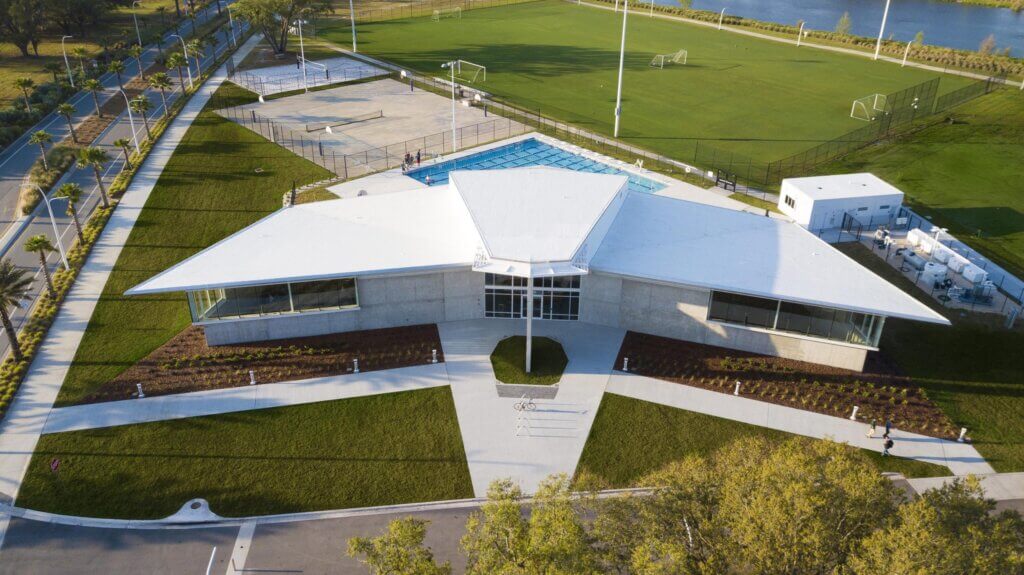Center for Free Enterprise and Entrepreneurship at FSC Helps Students Transform Ideas into Businesses
At Florida Southern College’s Center for Free Enterprise and Entrepreneurship (CFEE), learning goes far beyond the classroom, giving students opportunities to develop their ideas into reality.
The CFEE opened as the Center for Free Enterprise in 2013 with a focus on free enterprise and why entrepreneurship matters in society, said Michael Weber, dean of the Barney Barnett School of Business and Free Enterprise. It offered a Business & Free Enterprise major and welcomed politicians, those versed in the law and economists as speakers, something that continues today.
It added Entrepreneurship in Fall 2020 to “begin the learning necessary to understand the ‘how’ of creating businesses,” Weber said. Justin Heacock joined the center as its director and entrepreneur-in-residence in August 2021 “to implement the strategies and tactics to make that happen.”
Program’s Entrepreneurship Mission
Its mission is “to instill an entrepreneurial mindset and reinforce free enterprise principles for Florida Southern College and the Central Florida community that result in the creation of new ventures and intrapreneurial innovation,” according to its website.
In its first two years, 96 students participated in the center’s Seed-to-Scale incubation program, Heacock said. “That resulted in 70 startups, $76,500 awarded in two years, four statewide winners in entrepreneurial competitions and 23 jobs created.”
Heacock believes in the program and what students are learning – and doing.
“When we talk about entrepreneurship it’s about the value of learning an entrepreneurial mindset that helps you understand how your ideas or major fit into the world,” he said. “It’s not necessarily about being a business owner, it’s about being an innovative leader in new or existing ventures. At the CFEE, we want all of our students to understand what it means to come up with new ideas, analyze opportunities, mitigate risk and execute. If students can do these things, they can add value in whatever organization they will be a part of.”
The Why and the How
The center “creates an entrepreneurial mindset and reinforces free enterprise principles through academic programming, interdisciplinary experiential learning and student driven engagement,” according to its website.
It focuses on the WHY – learning the principles of free enterprise — and the HOW — allowing students to learn by doing.
“At Florida Southern College, one of the things that makes us unique is our small classroom environment and our focus on experiential education,” Weber said. “Entrepreneurship is one of those things that has to be experienced to really be understood, and that is where our importance lies. We create opportunities for students to start a business both inside and outside the classroom that results in higher learning outcomes through experiential education.
Advanced Economic Development in Polk
“As an academic institution, our main goal is to provide training and knowledge that produces a better workforce to drive economic development,” Weber said. “In the center we do that through an entrepreneurial mindset that allows individuals to become change agents in whatever organization they are part of. In changing times, the ability to think entrepreneurially is going to be the difference between what organizations are around or not in 20 years.”
Even though the center’s main purpose is education, its programming will also foster spinoff companies that are successful, he said.
Entrepreneurship Success Stories
Since its inception, 10 students have graduated, leaving 60 in the Seed-to-Scale program, which offers students a process to turn their ideas into businesses. Those include:
- 25 startups in the Seed Stage, where students must develop their ideas and find market for them.
- 22 startups in the Build Stage, where they work with Catapult – a business incubator in Lakeland – to create prototypes and test customer demand.
- 13 startups in the Scale Stage, where they get financial support through competitions to begin building their companies.
“The $76,500 comes from various state and local entrepreneurial competitions,” Heacock said. “We have an internal competition called Truist Business Plan Competition every year that gives out $10,000.”
Their success stories include:
- Brooke Lierman, founder of OverTheShoulder, a runner alert safety device for women. She won $31,000 in 18 months to create a functioning proof of concept.
- Jacqueline Martinez, founder of Taqueria Del Angel, a Mexican taqueria. She developed her idea as a freshman and now, as a sophomore, has “a fully functioning restaurant business at 19 years old,” Heacock said.
- Rafael Jorge, Founder of Mastro, a data driven digital marketing business that helps companies build brand and social media strategies, along with web design. “He started this business in Brazil with five employees and as a student wanted to bring it to the United States,” Heacock said. “We helped him get $100,000+ in revenue his senior year, and now he has seven employees.”
- Joseph Shenton, co-founder of Joseph James Furniture Outlet in the United Kingdom. “They have done $4 million in total revenue and have 16 employees,” and he just graduated in May 2023, he said.
Here for the Community
The center also partners with Nyrka Riskin to offer leadership workshops and certificates for community members. Riskin is an entrepreneur, visionary leader, speaker and coach who runs her own consulting firm, Nyrka Riskin Professional Training and Coaching. She is fluent in Spanish, has an MBA from Florida State University, and is a three-time award winner for her development of customized leadership programs, according to the CFEE website.



